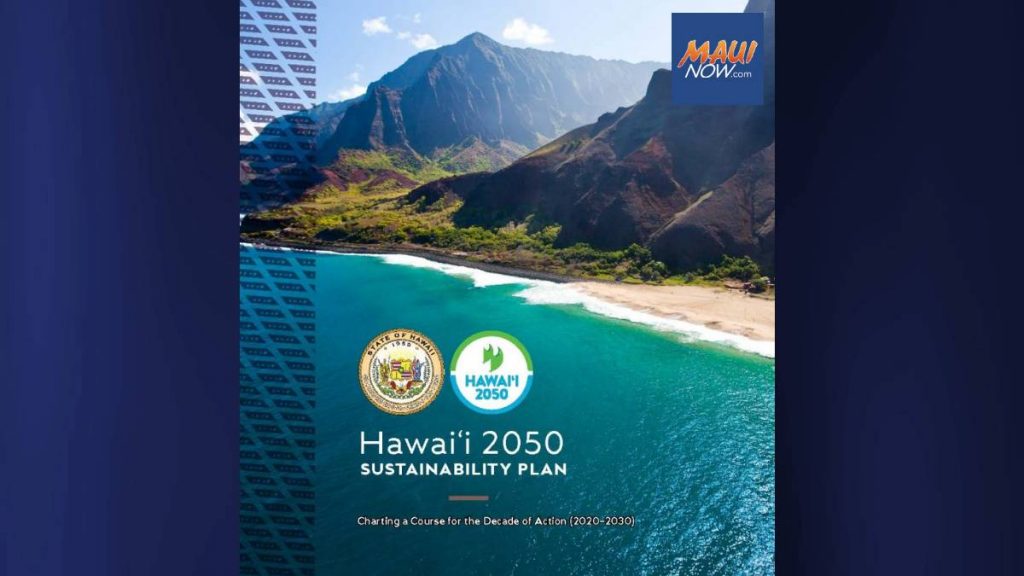Hawaiʻi’s sustainability plan receives national award

The State of Hawai‘i’s 2050 Sustainability Plan received a national Merit Award from the American Planning Association at a celebration earlier this week at the San Diego Central Library in California.
The Hawaiʻi 2050 Sustainability Plan: Charting a Course of the Decade of Action (2020-2030) serves as the state’s climate and sustainability strategic action plan. It recommends actions guiding the coordination and implementation of Hawai‘i’s sustainability and climate resilience in alignment with the crucial 2020-2030 Decade of Action, to meet the United Nation’s sustainable development goals and goals of the Paris Agreement, locally.
The American Planning Association’s Sustainable Communities Division recognized the plan’s excellence in sustainability.
Sustainability Coordinator Danielle M. Bass accepted the award on behalf of Gov. David Ige and the State of Hawaiʻi.
In a statement, Gov. Ige said: “It is a tremendous honor for the State of Hawaiʻi to be nationally recognized for its commitment to a more sustainable future – sharing a collective vision to protect our islands through climate adaptation, resiliency and sustainable practices.”
Bass said: “Hawai‘i has long been at the forefront of sustainable practices from our Native Hawaiian worldview to mālama ‘āina and mālama Honua. This 10-year plan for the 2020-2030 decade brings us all together, as the people of Hawai‘i — across sectors, governmental agencies and communities with a shared vision, strategies and actions to build a sustainable Hawai‘i.”
The sustainability plan highlights the shared vision gathered through extensive public engagement and feedback that the COVID-19 pandemic offers a critical opportunity to reset and rethink Hawaiʻi’s near-term future to be more equitable, climate resilient and sustainable.
The plan is grounded in Hawaiian and traditional ecological knowledge and values. Its vision includes:
- A diversified economy that is rebuilt sustainably – not simply a return to “business as usual”
- Promoting a regenerative and sustainable tourism industry
- Increased self-sufficiency in the local agricultural and energy sectors
- Green workforce development
- Reducing greenhouse gas emissions in the energy, transportation, agriculture and waste sectors
- Advancing sustainable communities through strategies that improve land use
- Investment in communities: education and people
- Investment in local infrastructure to ensure climate: resilient adaptation and strong sustainable communities for Hawaiʻi’s future





_1768613517521.webp)






